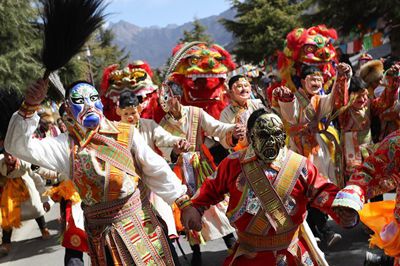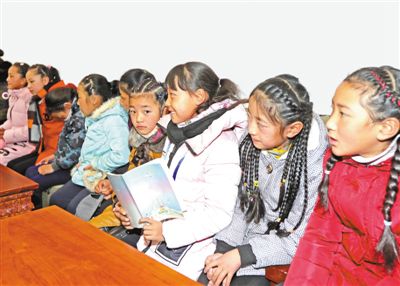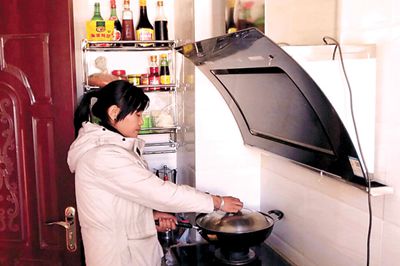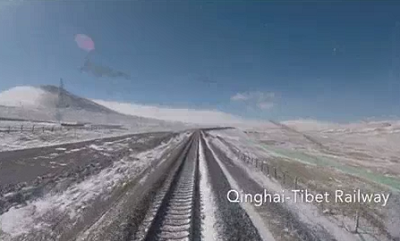|
Q: Why doesn't the Chinese Government respond the Dalai Lama's proposal for dialogue?
A: The Tibet issue is entirely an internal affair of China. The conflict between the central government and the Dalai clique is by no means an ethnic or cultural issue, neither a religious nor human rights problem. Rather, it is a question either to safeguard national unification or to split China.
The obstacle for dialogue lies on Dalai side. The Chinese Government has always been patient in maintaining contact with Dalai and our policy on this is a consistent one. Already 20 batches of representatives from Dalai have visited back China and 6 rounds of contact had been conducted with Dalai's personal representatives even before the Lhasa riot, but unfortunately to no avail due to insincerity of the Dalai side.
Our door for dialogue with Dalai is still open. We have to learn not only what Dalai says, but also what he does. As long as the Dalai side stops activities splitting China, stops activities scheming and instigating violence, and stops activities sabotaging the Beijing Olympic Games, the central government of China is ready to continue contacts and talks with him at any time.
Q: What are the latest achievements in Tibet, the economic, cultural, educational, religious and etc.?
A: The old Tibet before 1959 was a feudal serfdom that practiced theocracy dictatorship by monks and nobles, which is no less dark, backward barbarous and cruel than that in Medieval Europe. Over 95% of the population were serfs who could be traded or slaughtered at their owners' discretion. The economy in Tibet was stagnant, the average life expectancy was only 35.5 years and over 90% of the population were illiterate. There was no real school and a single institute on Tibetology.
Since the democratic reform in 1959, people in Tibet today live a much better life and enjoy extensive human rights. For the past five years alone, the state has financed Tibet RMB 94.7 billion in development. GDP of the region has registered an average growth rate of above 12% for 7 consecutive years, much higher than national average. Meanwhile, income for farmers and herdsmen has been growing in double digit figure for five years running, reaching RMB 2,788 last year.
Tibet is also witnessing rapid social development. To date, the region had over 35,000 deputies to people's congress at various levels, 1,022 schools with more than 500,000 students, above 50 Tibetological institutes, and 1,378 hospitals and clinics. Admission rates for primary schools and junior middle schools for school age children reached 98.2% and 90.7% respectively. Students attending schools in rural areas do not have to pay for either food or accommodation at school. All farmers and herdsmen are covered by a medical program with increased governmental subsidy with the poor enjoy the guaranteed living expenses. The average life expectancy has increased to 67 years. Various religious activities are being carried out in a normal way, and each year there are about 1 million pilgrims visit Lhasa. There were over 1,780 religious sites and more than 46,000 lamas and nuns, i.e., one sixtieth of the population. In the past 20 years, the government has invested over RMB 700 million in repairing temples, cultural relics and religious sites, as well as made efforts in the collection and publication of Tibetan classics. |
- Home
- News |Tibet |Exclusive |China |World |Other Tibetan-Inhabited Area |Tibet through the Eyes of Foreigners |Related News
- Documents |White Papers |Others
- Photo |Politics |Economy & Society |Culture & Religion |Human & Nature |Beautiful Tibet |Other Tibetan-Inhabited Area |Exchanges |Related
- Video |News |Documentary |Micro-Video |Entertainment
- Art
- Tourism
- In Focus
- About Tibet






